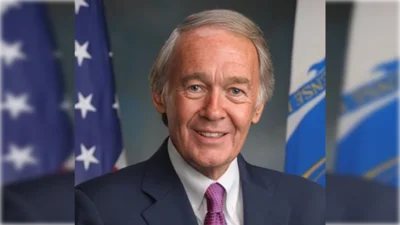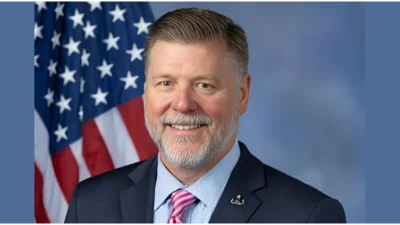Dear Congressmen Walden, Pallone, Burgess, and Green:
We write to provide additional information to consider as part of the Subcommittee on Health’s hearing on Oct. 3, 2017. We understand this hearing will include discussion of S. 204, the Trickett Wendler, Frank Mongiello, Jordan McLinn, and Matthew Bellina Right to Try Act of 2017, a bll that passed the Senate unanimously on August 3rd.
As the sponsors of S. 204, named after just a few of the amazing patients who have inspired our work on this issue, you can understand we are passionate about opening potential pathways to treatment for terminal patients when no other alternatives are available. We are proud of this measure’s bipartisan support in the U.S. Senate, including 46 cosponsors. Over two-thirds of states have already adopted versions of this legislation, with over 97 percent of state legislators voting in favor.
When Chairman Lamar Alexander and Ranking Member Patty Murray of the Senate Committee on Health, Education, Labor & Pensions raised concerns about certain provisions in the bill, we were happy to work with them in a collaborative fashion to successfully address those issues. As such, the bill as passed by the Senate reflects sensible changes, including:
(1) greater transparency surrounding reporting serious adverse events;
(2) a uniform federal definition of eligible patients;
(3) a cap on the price charged for treatments;
(4) further clarification that other provisions governing regulation of drugs still apply
(e.g., good manufacturing practices, labeling requirements, etc.);
(5) provisions maintaining the FDA’s use of adverse outcomes; and
(6) clarifyied liability provisions to protect good actors and exclude bad actors.
These changes were made in addition to the bill’s existing provisions that explicitly maintain incentives for patients to participate in clinical trials and pursue other available treatments, require certification by a doctor that the patient has exhausted available options, and limit eligible treatments to those that have completed a Phase I clinical trial.
Last Congress, the Senate Committee on Homeland Security and Governmental Affairs, which has jurisdiction over the regulatory process, held two hearings on this issue. We heard testimony from terminally ill patients across the country-such as Matt Bellina of Bucks County, Pennsylvania and Jordan McLinn of Indianapolis, Indiana-for whom the FDA’s status quo is not working. We also heard from a brave doctor in Texas who successfully treated patients under his state’s Right to Try law despite risk of federal sanction.
We have always been careful not to represent Right to Try as a promise for a cure-Congress cannot legislate a miracle. This pursuit has always been about protecting hope. Patients (along with their doctors) are informed, capable of making rational decisions, and have the right to do whatever they can to try to save their own lives.
Finally, we understand that there may be some discussion regarding who ought to be eligible to participate in Right to Try-whether the definition contained in the legislation is too broad. Our test has always been a simple one: will the legislation benefit Jordan McLinn, a seven year-old old boy with Duchenne Muscular Dystrophy, a terminal disease by anyone’s standards, but not one that will likely take his life within six months, one year, or even two.
Every day that Congress fails to act is a day during which potentially thousands of patients lose hope. As Frank Mongiello, who suffers from amyotrophic laterals sclerosis, pled when we first introduced the Senate bill over 16 months ago, “We don’t have the luxury of time." On behalf of Frank, Matt, Jordan, and Trickett’s family, we must do whatever we can to ensure that Right to Try is passed by the House and signed into law as soon as possible. We are urging the House to take up and pass S. 204 without amendment.
Thank you for working with us on this legislation.
Sincerely,
Ron Johnson Joe Donnelly
Chairman U.S. Senator
cc: The Honorable Joe Barton
The Honorable Fred Upton
The Honorable John Shimkus
The Honorable Tim Murphy
The Honorable Marsha Blackburn
The Honorable Steve Scalise
The Honorable Robert Latta
The Honorable Cathy McMorris Rodgers
The Honorable Gregg Harper
The Honorable Leonard Lance
The Honorable Brett Guthrie
The Honorable Pete Olson
The Honorable David McKinley
The Honorable Adam Kinzinger
The Honorable Morgan Griffith
The Honorable Gus Bilirakis
The Honorable Bill Johnson
The Honorable Billy Long
The Honorable Larry Bucshon
The Honorable Bill Flores
The Honorable Susan Brooks
The Honorable Markwayne Mullin
The Honorable Richard Hudson
The Honorable Chris Collins
The Honorable Kevin Cramer
The Honorable Tim Walberg
The Honorable Mimi Walters
The Honorable Ryan Costello
The Honorable Buddy Carter
The Johnson-Donnelly bill that passed the Senate in August can be found here.
Vice-President Pence and the White House also indicated their support of right to try earlier this year.
Thirty-seven states have passed right to try bills on an overwhelming bipartisan basis.
Source: U.S. Senate Committee on Homeland Security and Governmental Affairs









